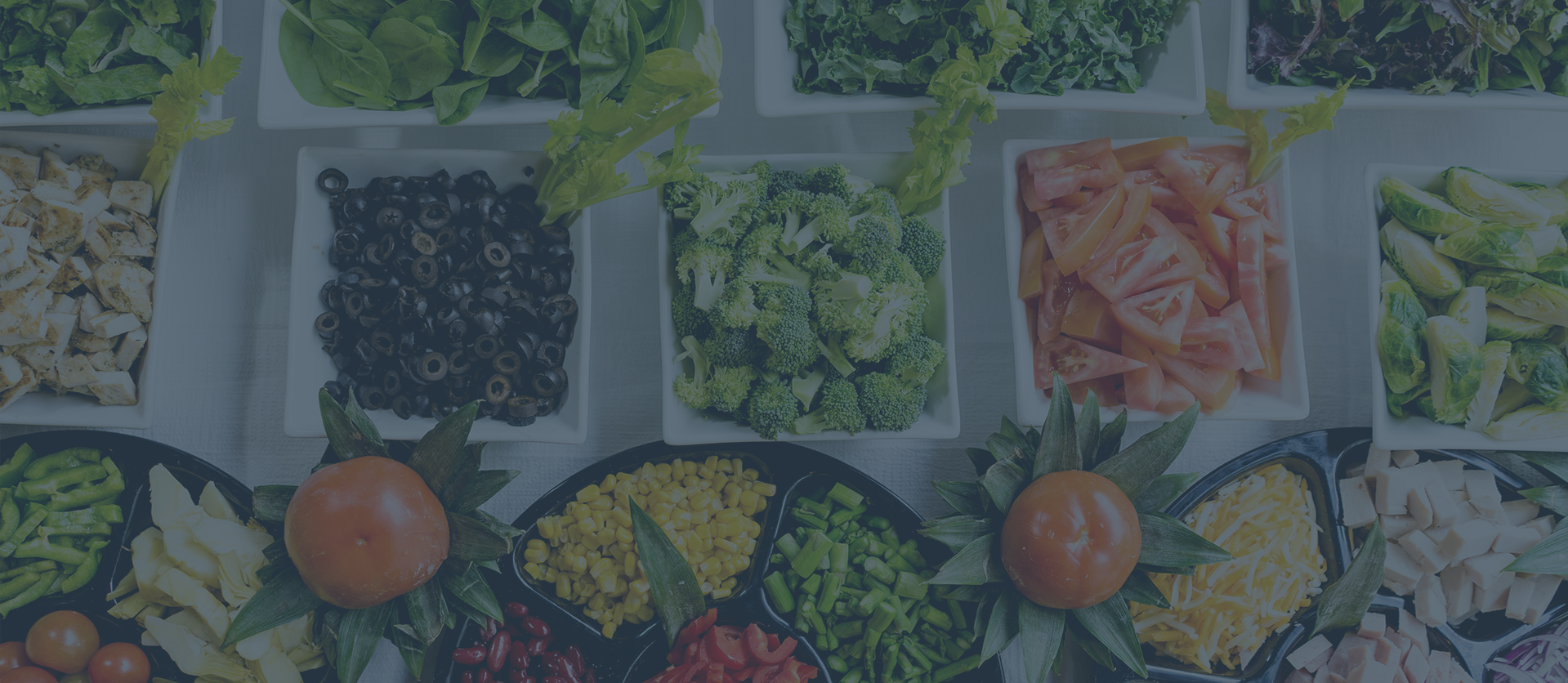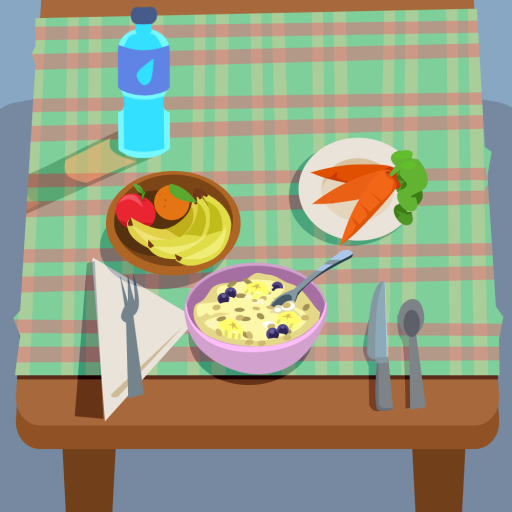Select the right foods that belong to the given categories.
- Učenik govori o zdravoj prehrani i svojim prehrambenim navikama.
- Učenik koristi brojive i nebrojive imenice.
- Učenik koristi buduća glagolska vremena pri govorenju i pisanju.
1 Where does it belong?
Fruits
Vegetables
Food sold in packets
Food sold in tins or jars
Meat
Fish
2 The Food Pyramid
Read the text about the healthy food pyramid and answer the questions:
- What do studies show about our intake of foods from the top shelf of the Food Pyramid?
- How many glasses of water a day does a teenager need to drink?
- From which food group should teenagers eat the least amount of servings?
- How much did the soft drink consumption increase from 1978 to 1998?
3 Video - Countable and Uncountable nouns
Watch a video on countable and uncountable nouns and then do exercises 4 to 8.
DAD: I really think that we need to go to the supermarket because we don't have anything to eat.
DAUGHTER: Are you sure? Our fridge is almost full, I really don’t think that we need to go grocery shopping yet. Are there any vegetables in the fridge?
DAD: Well, we have some lettuce, some carrots, a tomato and some cucumbers.
DAUGHTER: How many cucumbers do we have?
DAD: Seven. That's enough.
DAUGHTER: OK, we can buy some cabbage and Brussels sprouts. What about fruit? Do we have any strawberries? I really love them!
DAD: Yes, we have a lot of strawberries and we don't need more. But there aren't any bananas or oranges, so we can buy those because Mum and Jack like them.
DAUGHTER: Yes, we will get them the fruit they like. How many oranges and bananas will we get?
DAD: I usually buy two kilos of each. That will be enough for a couple of days.
DAUGHTER: What about orange juice and milk? Do we have any in the fridge and how much do we need if there isn't any?
DAD: We have a carton of milk and three cartons of juice, so we only need to get some milk.
4 Countable or uncountable?
Complete the table with the following words.
Countable
Uncountable
5 A, an or some?
Select the best option for each of the following sentences.
1 I have
fantastic idea regarding our next holiday!
2 She has
homework to do for her next German class.
3 I would really like
piece of chocolate cake, I'm craving for something sweet.
4 The miners have found
gold in the mine next to my house.
5 Have your parents bought
orange car? Do you like the colour?
6 My brother has such
interesting job. He is a game designer and he plays computer games all the time!
7 Look at the gorilla over there! He is having
fruit and vegetables for lunch.
8 How about
ice cream? It's really hot!
6 Choose the correct sentence
Choose the correct sentence. Some sentences have questions just to add context.
7 Some or any?
Choose the correct answers.
8 Much or many?
Fill in the blanks with much or many.
9 Listening I
Listen to a speaker talking about fussy eaters and choose the correct option in the sentences below.
For as long as I can remember, I have been an extremely fussy eater, especially when I was 5 or 6 years old. My usual choice of food included some raw fruit or vegetable and stale bread; the older, the better. I know that my parents were angry and worried at first, but they have learned to accept it. Luckily, I have grown out of it, mostly, but I am still a fussy eater and can list more things that I don't like than things I do.
Research has shown that some people are born with a specific gene that is responsible for making their food choices because it makes them more sensitive to strong flavours. Sweet, bitter and salty things have a stronger taste to them so children with that gene often refuse bitter food because of its flavour.
There is a large chance that my children will also be fussy eaters because children usually mimic their parents’ eating habits. This is the reason why parents should offer different kinds of food to their children, especially when they are very young. Food like fish or red meat is usually too strong for fussy eaters, while mushrooms turn them off due to their texture. If they try food with different flavours and textures, they will probably have a healthy, well-balanced and versatile diet.
10 Put the words into the sentences
Put the following words into the sentences.
GRAMMAR FOCUS
| GRAMMAR FOCUS |
|---|
| "Will" future ("will"/ won't + infinitive) | "Going to" future (am/ is/ are "going to" + infinitive) |
| A decision made at the moment of speaking: | A decision made before the moment of speaking, a planned action: |
|
Mina: There are no eggs in the fridge. Ricky: Really? In that case, I'll go to the shop and get some. |
Mina: There are no eggs in the fridge. Ricky: I know. I'm going to go and get some when the game finishes. I'm going to go on holiday next week. |
| A prediction based on our personal opinion (usually with think, hope, believe, presume): | A prediction based on something we can see (or hear) now: |
|
I think the Croatian handball team will win the championship. |
The Croatian team has scored five goals in the last three minutes! They are going to win the match. |
| A future fact: | |
|
The sun will rise tomorrow. |
Ricky: I know. I'm going to go and get some when the game finishes. I'm going to go on holiday next week. |
| For promises / requests / refusals / offers: | |
| I'll help you with your homework if you want. | |
11 Listening II
Listen to a conversation between two teenagers talking about their present and future eating habits and fill in the gaps with the correct form of the verb, "will" or "going to" future.
BOY: I have a short break before my next class. Would you like to come to that new fast food restaurant with me?
GIRL: Oh, sorry, but I don't eat fast food. I try to make some home-cooked food before classes because a healthy diet is really important to me.
BOY: Wow, that's great, but I never know what to prepare because I don't have a lot of time in the morning.
GIRL: Well, if you are interested, I will show you how to prepare some easy healthy dishes.
BOY: Really? That sounds great! When can we do that? Are you free on Saturday?
GIRL: Saturday is great because I don't have any plans. Are you free at 3?
BOY: Yes, I will be home at 3. What do I need to buy?
GIRL: Great, I am going to come to your house at 3. You don't need to buy anything. I will bring some ingredients that aren't expensive.
BOY: Then I will prepare all the fruit and vegetables that I have. I think I also have some tuna and salmon in the fridge.
GIRL: That sounds great! I am going to teach you how to prepare a healthy tuna sandwich and some pasta dishes you can even eat cold.
BOY: Excellent! I know that my mum used to make a healthy carrot cake when I was a kid, so I'm going to buy carrots and ask my mum for the recipe. We are even going to have a dessert!
GIRL: It's a deal! I am going to bring my blender and make smoothies. They are great as quick meals before school.
12 Will or going to?
Put the verbs from brackets into the correct form using will or going to.
13 Writing
Write 10 sentences about your future eating habits using "I think", "I will" and "I am going to". Check your spelling.


